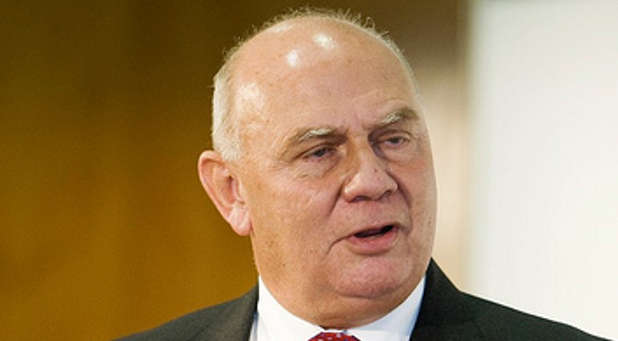British Tycoon Rolls Out 21st-Century Digital Gospel Tracts
Imagine nearly everyone in the world holding a “gospel tract” that they check several times a day.
That’s what technology provides for believers who want to share their faith. With most of the modern world referring to their mobile devices, there’s an app that tells about Jesus in a fresh, winsome way—often using the testimonies of celebrities.
It’s a website and an app called “yesHeis,” the brainchild of a wealthy British businessman with a heart for ministry.
Lord Robert Edmiston has done charitable work since the late 1980s through an amazing ministry called Christian Vision, now called CV. To spread the gospel, CV utilizes many means, including shortwave radio, which was especially effective for many years in areas that have little to no religious freedom like that in Muslim-dominated countries.
I first heard about this at an international networking meeting of business and ministry leaders. I was so impressed that I downloaded the free app and later interviewed Lord Edmiston about it.
New content is posted daily on yesHEis.com. It’s easy to find videos from celebrities like Bono who give a very clear Christian witness. Material is arranged by topic for people who have a particular interest or who is grappling with a big problem.
Every video I watched was gripping and contained high production values. It’s the kind of content you will want to see if you are going through something, or repost on your own social media.
When I interviewed Lord Edmiston, he explained that often sincere Christians find it awkward to share their faith. yesHeis.com overcomes that obstacle by sharing videos of celebrities sharing their faith. If the person is interested, it’s easy for them to get more information and to be connected to a church or someone who can counsel them.
And if you send a video to someone you know, they are more apt to watch it and won’t consider it spam. That’s a far cry from handing a stranger a printed “tract” that most throw on the ground and never read.
“The main idea is that they do repost it,” Lord Edmiston told me. “So if you know your friend is depressed, put in the word “depression” and you’ll find material on depression. Find the one that you think suits them best and post it. They then will have a chance to say, ‘Hey that really spoke to me. I’d like to know more.’ It’s a way of evangelizing.”
He added that if someone is suicidal, there is a lot of information on the web on how someone can take their own life. But yesHEis.com has information in one place on why suicide is not the answer. More than 100,000 people a day are coming to the site looking for answers to many more of life’s issues.
In the three years it has been available in other countries, more than 100,000 people with access to the app have made professions of faith in Christ.
I was fascinated with the story of how it began. For many years, Christian Vision had been using various media to spread the gospel. One of the main ones was shortwave, which went into areas like the Muslim-dominated world or communist nations where the gospel couldn’t be preached publicly. However, when they noticed that listenership was going down, Edmiston said he prayed for a solution.
“I felt the Lord say, ‘I’ve already given you the answer.’ Actually, when you think about it, nearly everybody in the world is carrying a mobile phone, and so they are carrying the answer in their hand,” Edmiston said. “They’re carrying a tract, a Bible, an information source and a means of learning about Jesus in their hand. There are no boundaries to this, there are no geographic boundaries. We are already in nine different languages—in Chinese, in Spanish, English obviously, Russian and others.
“This is universal, so you can be a missionary to China from your front room in America and that’s the exciting bit about it.” I believe God’s given into our hands to our generation the capability of reaching the world for Jesus.”
There is one more advantage to using social media. If a ministry sends out something about the gospel, most people would consider it spam and delete it.
“If this is a message coming from your friends—and that’s the key—it’s the people themselves who are sharing,” Lord Edmiston said. “It’s the church doing what it was always designed to do. When I get a message from my friend, I’ll listen. But if I get spam, I’ll delete it. We can advertise, we can promote, we can do everything, but 99 percent of it would be wasted. This has a much higher traction rate.”
I encourage you to check it out and to help get the word out by sharing this commentary on social media. Then, leave your comments here. Are you as impressed by the content as I am?
Steve Strang is the founding editor and publisher of Charisma. Follow him on Twitter @sstrang or Facebook (stephenestrang).














































